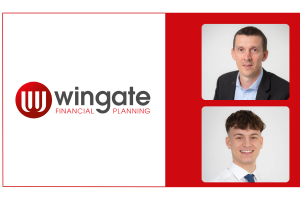When it comes to change and innovation, platforms would argue they are changing all the time – constantly building improvements in functionality and service.
At the same time, we are seeing advice and planning firms breaking away from current ways of working, whether that’s simply changing platform, building their own tech capabilities or even taking on platform responsibilities themselves.
We heard at our HomeGame 3 event two very different perspectives on where disruption comes from, with Seccl’s David Ferguson and Scottish Widows’ Jackie Leiper going head to head. (If you missed this, it’s worth a watch – catch up here for the highlights, where you can also watch Dave and Jackie’s session in full).
At our post-event roundtable held earlier this month, panellists went beneath the headline debate to discuss what really drives change in the platform sector.
Are platforms changing for the better? What are the implications of advisers building their own tech and then expecting this to integrate with existing systems? And as roles and responsibilities shift and blur, what are platforms actually for?
Our panellists were:
- Billy Burnside, managing director, Criterion
- Paul Greenhill, head of proposition, abrdn
- Ross Easton, head of platform propositions, Scottish Widows
- Sarah Lyons, chief marketing officer, Parmenion
Platform progress
One of the questions we posed at HomeGame 3 was where does genuine change come from? Does it tend to come from the disruptors and the start-ups, or is it down to the incumbents to drive progress?
But panellists felt the reality was more nuanced.
abrdn’s Paul Greenhill said: “[The platform debate] became a bit of a challenge between two different platform models. There’s space for all of that, and competition can really help create innovation, but also how do we deliver innovation in the market as a platform?
“Innovation doesn’t need to be disruptive. There’s a sense that innovation means having to change the whole market. Whereas actually one of the big themes [from the event] was that the platform market is working pretty well and has done a lot of really good things in the last 15 or 20 years. I think we cannot lose sight of that.”
Paul Greenhill
“Innovation doesn’t need to be disruptive. There’s a sense that innovation means having to change the whole market. Whereas actually one of the big themes [from the event] was that the platform market is working pretty well and has done a lot of really good things in the last 15 or 20 years. I think we cannot lose sight of that.”
Scottish Widows’ Ross Easton agreed, arguing there have been many examples of where more traditional platforms have innovated across the sector, such as Aviva’s ESG look through on client portfolios, or Quilter’s work on vulnerable clients.
He said: “These are all brilliant examples of where we’re seeing people going further and doing more for the industry. None of them are using proprietary technology to do that, but they’re all creating choice and solutions and hopefully better outcomes for clients.”
Parmenion’s Sarah Lyons said:
“I think when we use the word innovation, we associate that with wholesale change, and with stuff that’s really different. Actually innovation can be evolutionary, not just revolutionary. And so all those examples are evolutionary change, aren’t they?”
Sarah Lyons
Within Parmenion, she gave the example of Advisory Models Pro, which helps advisers run their own model portfolios.
“Advisers running models isn’t something brand new or exciting. What Advisory Models Pro does is take an existing process and make it better. So I think we need to adjust our mindset when we’re thinking about innovation and what our expectations are of it, because I do think there’s quite a lot going on. It’s just incremental change rather than step change.”
As a not-for-profit organisation helping the financial services industry with standards and the flow of data, Criterion has a different perspective on innovation.
Managing director Billy Burnside said: “We work with the industry to collaborate around common solutions. So innovation is almost the flip side of that.”
For example, Criterion has recently been working with 30 DFMs and platforms to standardise information to manage models on platforms.
“So I enjoy seeing innovation because it ultimately leads to a demand for consistency on how these things operate on platforms. This is where we come in, to bring the industry together on a non-competitive basis to try and standardise that so that platforms and DFMs can scale their operations safely.”
Self-build tech and the data challenge
Another recurring theme from the event was around the sheer volume of kit advisers are using to run their businesses.
One of the sessions that touched on this focused on practice management systems. Pete Ridlington, chief executive of start-up software firm Ningi, talked about how each advice firm they work with is running about 10-20 different bits of tech each.
Billy pointed out that getting standard data across this many tech suppliers is a challenge.
The adviser ecosystem is evolving in different ways too, from intelliflo’s Wealthlink tie-up with SS&C, to advisers building their own tech and sources of data.
Billy said: “The concept of advice firms starting to build their own databases and trying to get that integrated with platforms and with tech suppliers, if I’m being honest with you, is slightly scary.”
Sarah challenged Billy on this, saying advisers should be the ones to own and control their data. Billy agreed this was true, but said there was an inherent challenge within that: “How do advisers keep that database up to date on all the platforms and all the technology they’re using to run their business?”
Sarah said: “I think that’s right. There’s also this thing about being jack of all trades and master of none. If we try and solve the problem by expanding individual technology stacks to do more things, I think you end up norming down unfortunately, in terms of capability, innovation and change.
“The need to get that data flowing around the ecosystem is so important because that will drive the efficiency the adviser needs. I think platforms need to be platforms. I think practice management software needs to be practice management software. I think fund research needs to be fund research. And even, dare I say it, platforms need to be platforms and advice businesses need to be advice businesses because I’m not sure the things mix very well.
“Let’s specialise in our own technology and let’s make them talk to each other. That’s the technology piece for me.”
What happens when the stakes get higher?
Disruptors and newer entrants to the platform market have the advantage of starting from a blank slate. Ross Easton from Scottish Widows suggested that perspective on innovation inevitably changes as those businesses scale.
He said: “To a certain extent these firms are operating very clean models and they don’t really have a huge amount of scale in their business. When they’ve got 10 times the customers and assets, they might find they’re not quite so culturally willing to take that risk because frankly, the stakes are higher. If something goes wrong, the failure demand that’s going to put on their business becomes much more significant.
“To a certain extent these firms are operating very clean models and they don’t really have a huge amount of scale in their business. When they’ve got 10 times the customers and assets, they might find they’re not quite so culturally willing to take that risk because frankly, the stakes are higher. If something goes wrong, the failure demand that’s going to put on their business becomes much more significant.
Ross Easton
“It is an oversimplification to say that large companies are risk averse and small companies aren’t. I think the reality is it’s more nuanced than that. There’s as much in there about performing at scale and having non-standard groups of customers or systems. That’s a trap everyone seems to have fallen into over the years.”
He adds while both new entrants and bigger platforms may be doing a great job just now, “the problem with small companies is they get big. And when they get big, things get more complicated.”
Paul Greenhill from abrdn agreed there was a challenge around scalability, and that innovation as a large platform would come from areas such client experience and service, rather than risking changes to fundamental processes such as trading and safe custody of client assets.
On data, he said it’s easy to think having access data will make life easier. “The challenge is what are you going to do with that data? How can you use that data to drive insight, to reduce your costs to better serve clients… to become more profitable and more efficient?
“Not every firm is going to have the capability to have a chief technology officer or a data analyst. So what can we as platforms do to help them kind of get the most out of that data?”
Paul suggested a platform’s role should be to help firms manage that data in using technology to spot trends, outliers or identify any actions to be taken with clients.
The idea that adviser technologies are merging and shifting was something that raised questions for Ross about ultimate responsibility.
He said: “My worry where you start getting blurred lines is it’s fine until something goes wrong and then who’s actually on point for it?
“You end up with a Chuckle Brothers scenario ‘to you, to me’ of whose fault it is. If a client trade hasn’t been placed and there is now a £10,000 execution liability, who’s paying for it? Because if the platform was never told about the trade, can you reasonably expect the platform to pick up the tab for that?”
He added: “In reality, our businesses work in three dimensions. We have customers and their assets, regulation and risks. If I’m correctly picking up what Sarah was saying, I think the heart of her point was platforms have to provide safe custody and accurate trading, and they have to stand behind best execution promises.
“That stuff is really important. Because if we don’t get that bit right, we break confidence in the industry. We let advisers and their clients down and we just can’t go there.”





